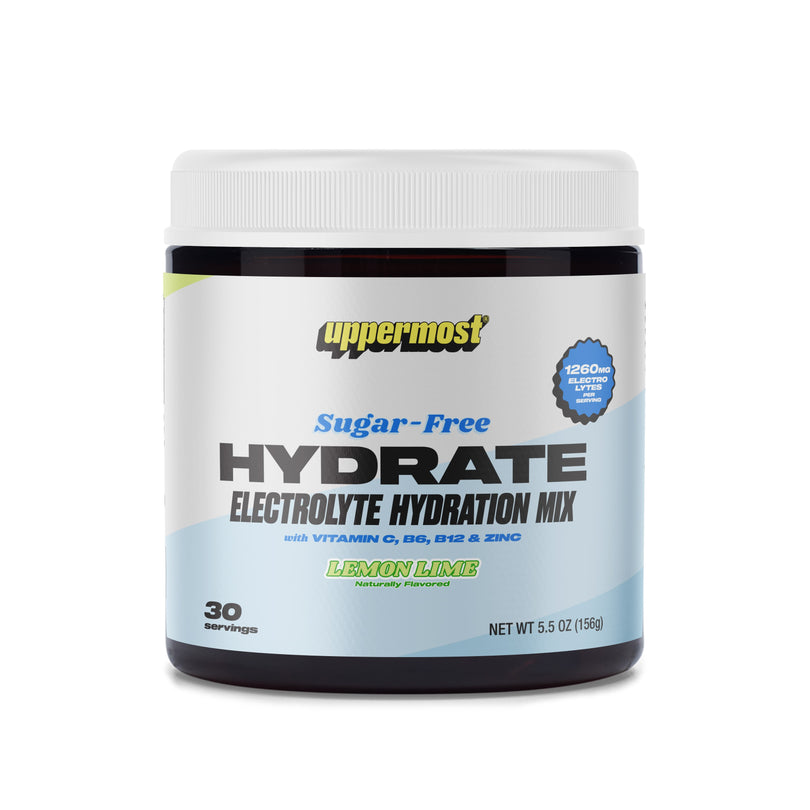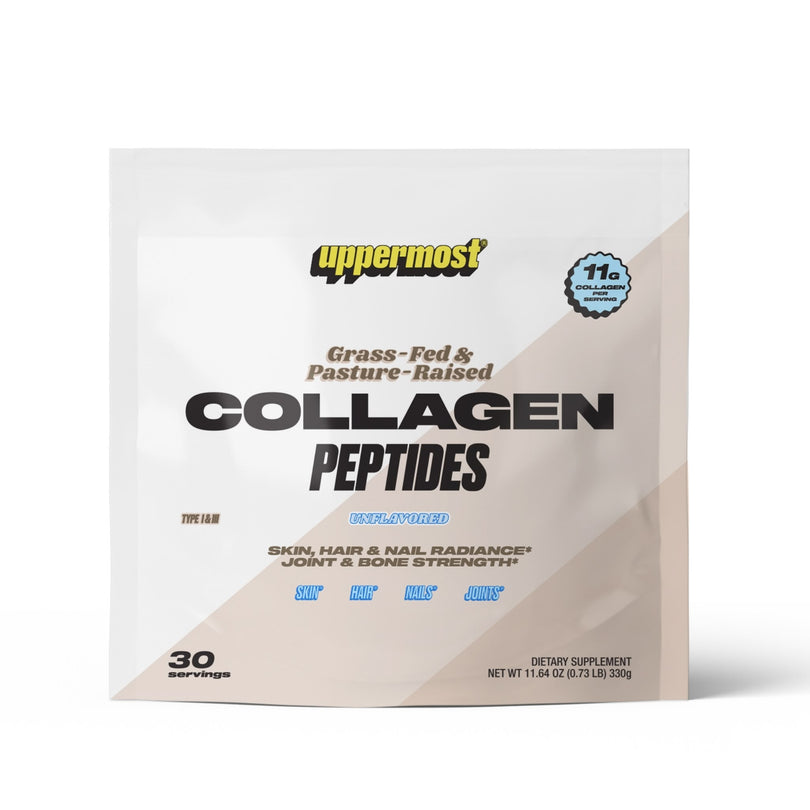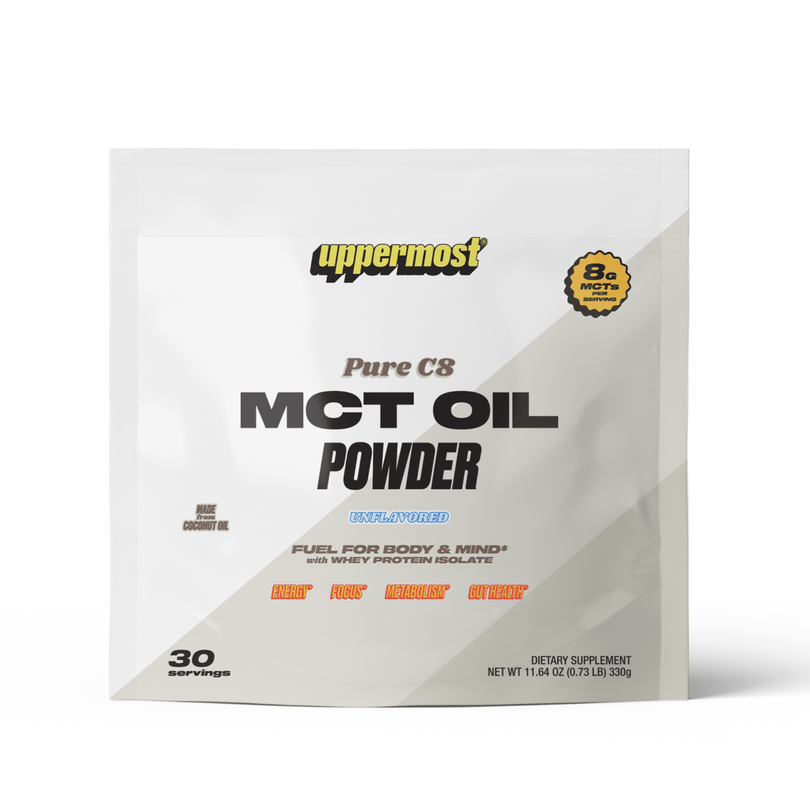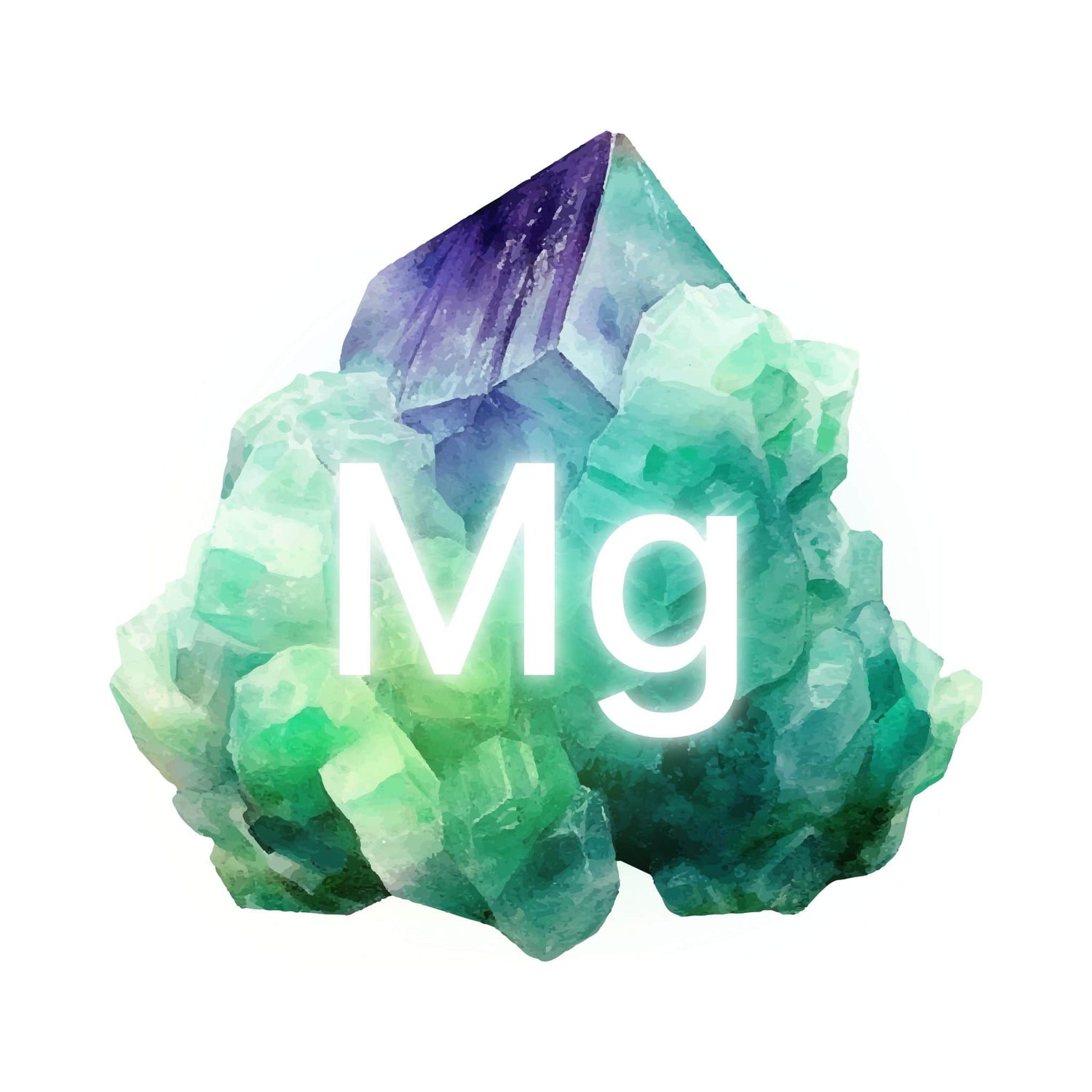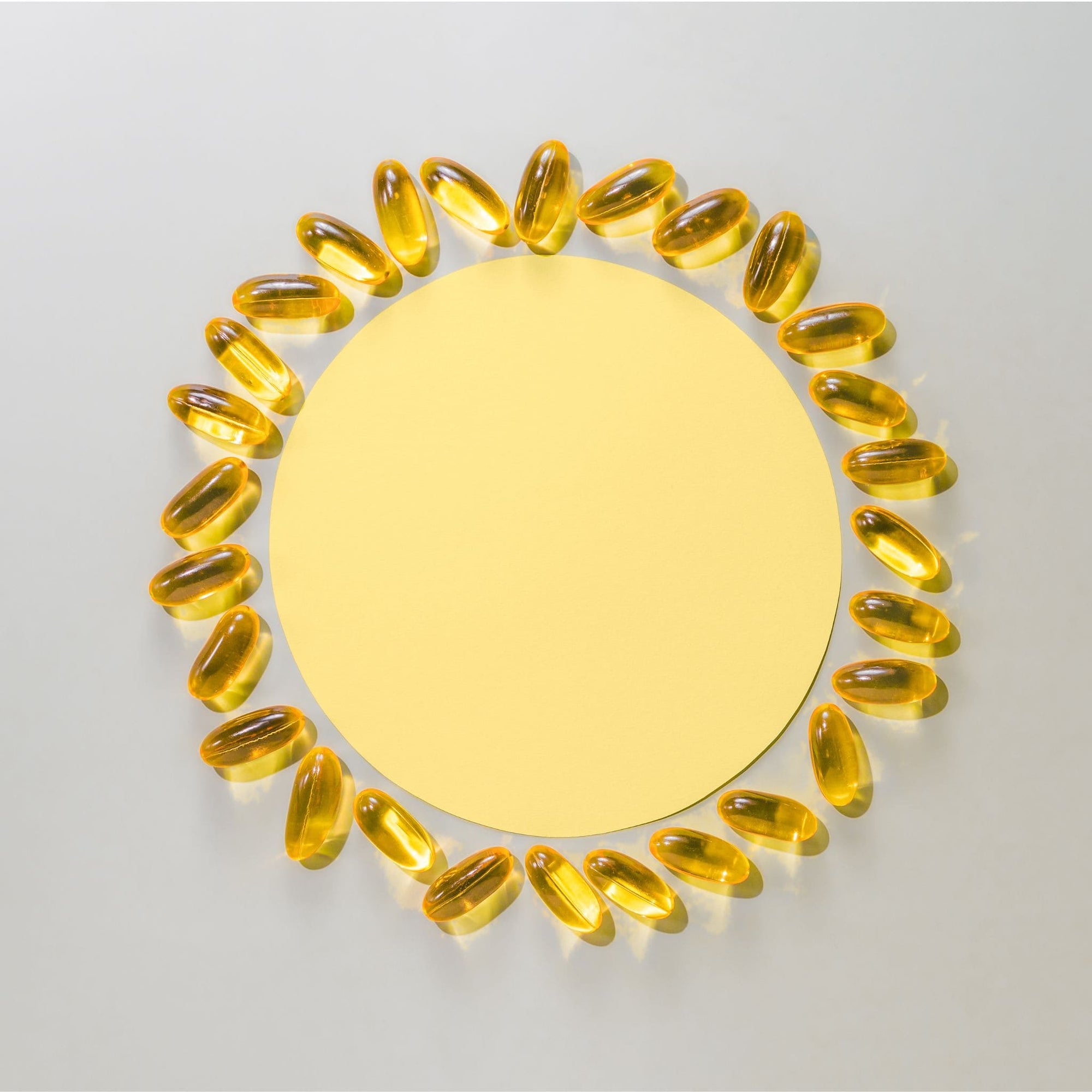Magnesium is an essential mineral that plays a crucial role in over 300 biochemical processes in the body, including muscle and nerve function, energy production, and bone health. Yet, many people are unaware that magnesium comes in different forms, each with varying levels of bioavailability and effectiveness for specific health concerns. Choosing the right form of magnesium can greatly impact its effectiveness for your needs, whether it's for sleep, muscle recovery, or digestive health.
In this article, we’ll dive deep into the most common forms of magnesium, which ones are the best, and which ones may not be as effective. We’ll also highlight the form we use at Uppermost to ensure you’re getting the best quality magnesium in your hydration mix.
The Best Forms of Magnesium
1. Magnesium Glycinate
Magnesium glycinate is one of the most bioavailable forms of magnesium, meaning your body can absorb it easily. It’s chelated, which means it is bound to the amino acid glycine. This makes it gentle on the stomach and a great option for those with sensitive digestive systems. Magnesium glycinate is known for its calming properties, making it an excellent choice for improving sleep quality, reducing anxiety, and supporting overall relaxation.
Best for: Sleep support, stress relief, and relaxation.
2. Magnesium Citrate
Magnesium citrate is another highly bioavailable form of magnesium. It's magnesium bound to citric acid, which makes it more soluble and easier for the body to absorb. It’s commonly used to promote digestion and relieve constipation, as it has a mild laxative effect. While it’s effective for digestive health, those who are not looking for these effects should take it in smaller doses.
Best for: Digestive health and constipation relief.
3. Magnesium Malate
Magnesium malate is bound to malic acid, a substance that plays a role in energy production. It’s a great option for those who are physically active or suffer from fatigue or chronic pain conditions like fibromyalgia. This form of magnesium supports muscle recovery and energy production, making it popular among athletes and fitness enthusiasts.
Best for: Muscle recovery, energy production, and reducing chronic fatigue.
4. Magnesium L-Threonate
Magnesium L-threonate is the newest form of magnesium, gaining popularity due to its ability to cross the blood-brain barrier. This form is particularly beneficial for cognitive function, memory, and brain health. It's often used in supplements targeting mental clarity and neuroprotection.
Best for: Cognitive support, memory, and brain health.
5. Magnesium Taurate
Magnesium taurate is magnesium bound to taurine, an amino acid that supports heart health. This form is ideal for those looking to improve cardiovascular health, as it helps regulate blood pressure and support proper heart function. It's also gentle on the digestive system, similar to magnesium glycinate.
Best for: Heart health and regulating blood pressure.
Moderate Forms of Magnesium
6. Magnesium Chloride
Magnesium chloride is often found in topical solutions like sprays and creams. It is highly absorbable through the skin and is commonly used to relieve muscle cramps, soreness, and fatigue. While it’s an effective form of magnesium for topical use, its oral bioavailability is moderate. It's often used in liquid supplements.
Best for: Muscle soreness (when used topically), moderate oral supplementation.
7. Magnesium Sulfate (Epsom Salt)
Magnesium sulfate, also known as Epsom salt, is commonly used in baths to relieve muscle aches and stress. While it is great for soaking in a bath, it’s not the best for oral supplementation due to its poor bioavailability. When consumed in excess, it can cause diarrhea and digestive upset.
Best for: External use for muscle relaxation and stress relief.
The Worst Forms of Magnesium
8. Magnesium Oxide
Magnesium oxide is one of the most commonly found forms of magnesium in supplements due to its low cost. However, it has very low bioavailability—only about 4% of the magnesium is absorbed by the body. This form is often used as a laxative, but it's not effective for raising magnesium levels in the body or providing other health benefits.
Worst for: Increasing magnesium levels.
9. Magnesium Aspartate
Magnesium aspartate is another form that isn’t widely recommended due to potential concerns about excitotoxicity—overstimulating nerve cells to the point of damage. While it’s sometimes found in supplements, it’s not the best choice for most people, especially when safer forms are available.
Worst for: Those with neurological concerns, such as anxiety or overstimulation.
Which Magnesium Form Do We Use?
At Uppermost, we believe in providing the highest quality ingredients in our products. Our hydration mix uses magnesium amino acid chelate, a highly absorbable form that supports hydration and muscle function. This form is gentle on the stomach, making it ideal for athletes and anyone looking to stay hydrated without digestive discomfort. For our magnesium supplement, we use magnesium glycinate, known for its superior bioavailability and calming effects. Magnesium glycinate is excellent for promoting relaxation, improving sleep quality, and supporting overall well-being.
Final Thoughts
When it comes to magnesium supplementation, choosing the right form is essential for reaping its benefits. For most people, highly bioavailable forms like magnesium glycinate, magnesium citrate, and magnesium malate are the best choices depending on their specific needs. Magnesium glycinate is a top choice for general use, promoting sleep and relaxation, while magnesium citrate can support digestive health. Avoid less effective forms like magnesium oxide, which provide minimal benefits.
At Uppermost, we’re committed to giving you the best forms of essential nutrients, including magnesium. Check out our Magnesium Glycinate supplement and our hydration mix featuring magnesium amino acid chelate to experience the benefits of optimal hydration and magnesium support.

